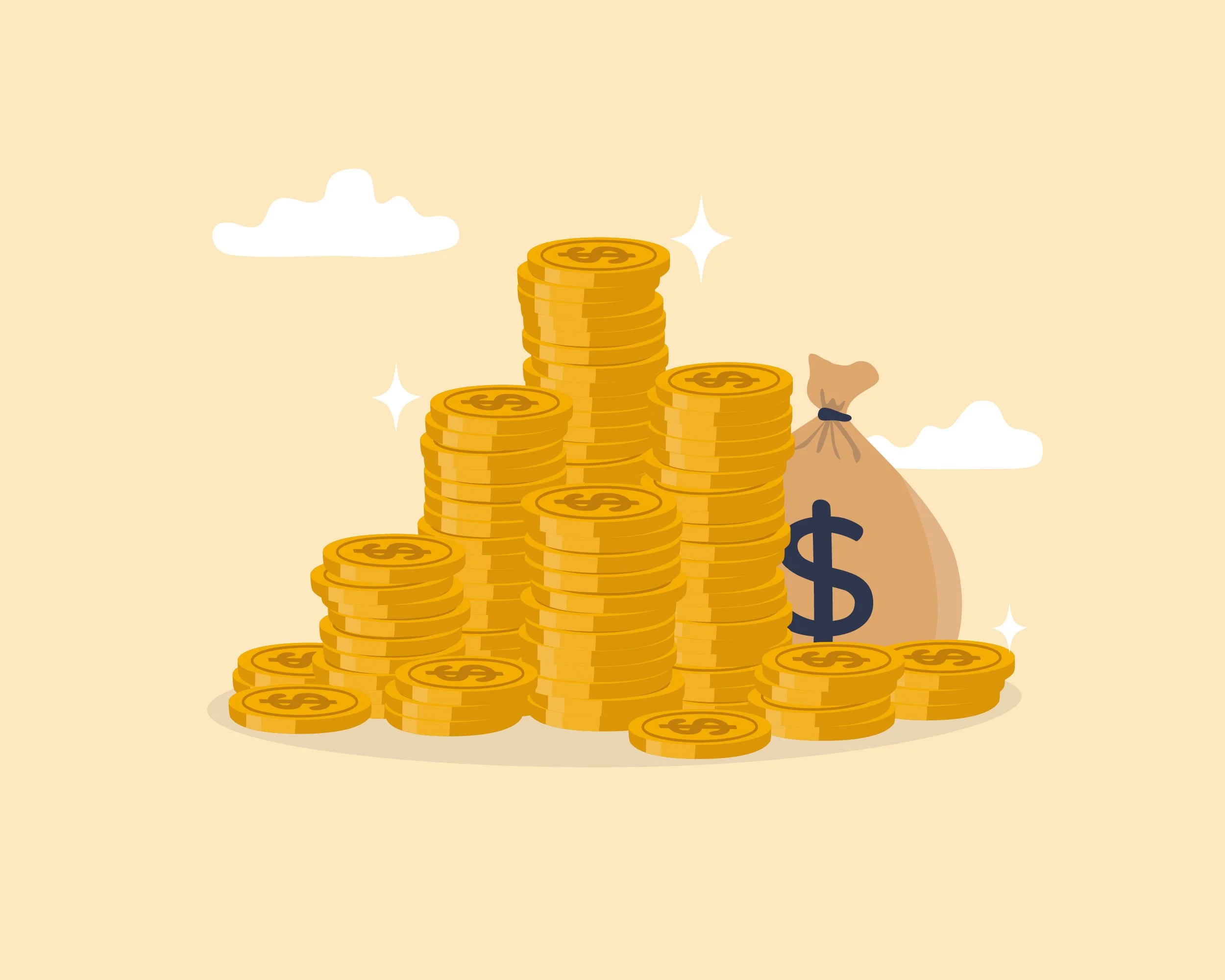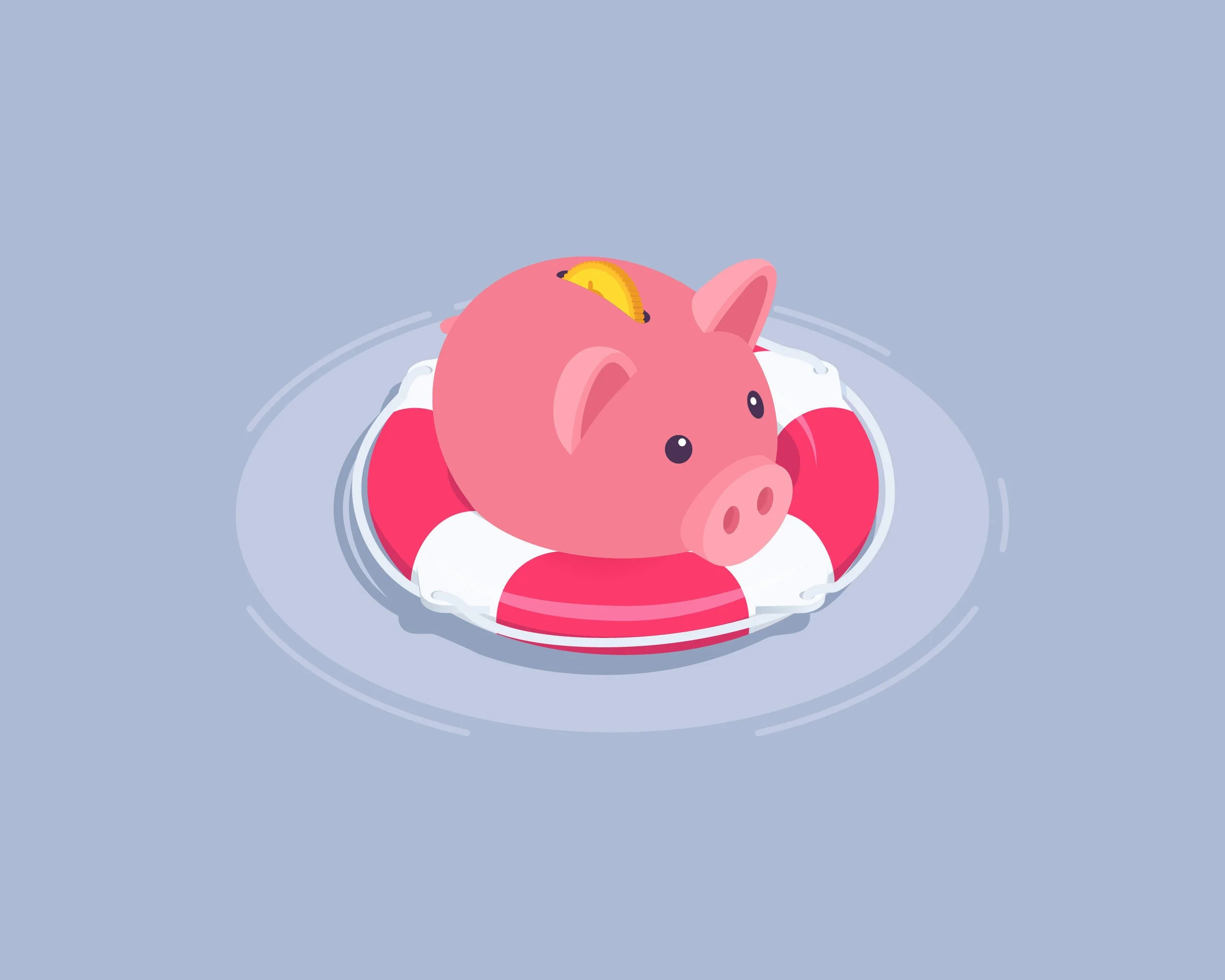There’s been a bit of drama this month—our household needs to reduce its spending. We’ve got a few things going on, and I think we’d be foolish not to mind our dollars right now. As of April 2025, with storm clouds brewing, we’re financially hunkering down. Before you start to think that The Happy Saver has gone into a tailspin because the share market is particularly volatile at the moment, well, that’s not our problem at all. We haven’t reduced the amount we invest each month. While the cost of everything else is rising, at least shares are on sale right now! You’ve got to find the positives.
All tagged Emergency Fund
Part 6: INVESTING - Financial Independence Series
Congratulations, you have made it to the final blog post in this series of six: INVESTING. Investing can be incredibly complex, but I found a way to simplify it. I used to feel overwhelmed by the options available, but now I don't. I’m hoping to help you feel the same way. But still, this is one of the most challenging blog posts I have EVER written. Condensing “investing” into a single document is no easy feat. The Happy Saver was born out of my search for information about what I could invest our money in. It took me years to arrive at our current strategy, which combines KiwiSaver and ETF investments. Ultimately, I finally found THE perfect information, which I want to share today.
Part 5: DEBT FREE - Financial Independence Series
I think of debt as a phase of life I moved through. That period has passed, and I’ve moved on. Jonny and I have now been entirely debt-free since our early 30s, and I encourage you to head down the debt-free path as well. Debt has always had an ‘ick’ factor for me, a feeling I am grateful for. I like earning interest, but I hate paying it. Despite our bank trying to lure us back into debt to buy a rental property, there has never been a day that I/we regretted becoming permanently debt-free. We never have to seek the bank's opinion about our financial decisions again.
Part 4: KIWISAVER - Financial Independence Series
The fourth part of this six-part series is one of the easier topics to cover, KiwiSaver. Joining KiwiSaver is a no-brainer, and it still surprises me when I meet people who are not in it. I’m always looking ahead and doing my best to determine what I might need money for and how much I might need. I keep my ear to the ground about how affordable retirement is for New Zealanders. I talk to people over 65 and ask them what advice they would give me about financially preparing for retirement. Then I ask myself if, on my current trajectory, I’m heading in the right direction.
Part 3: EMERGENCY FUND - Financial Independence Series
The best thing I ever did was set some cash into a bank account, which we could instantly access in a financial emergency. It is an amount of money set aside in a specific bank account to be used for bailing myself out if something happens that I didn’t otherwise plan for but I need money to pay for. It takes me less than one minute to log into my banking and move money from my emergency account to my spending account.
Part 2: BUDGET - Financial Independence Series
Budgeting is simply making a plan for your pūtea (money). Although I meet hundreds of people who are keen, motivated and willing to do better with their money, I meet few who are “Oh yay, let’s track our spending and earning each month”. I know. I understand your reluctance, but if you want to grow your wealth, you must do what wealthy people do. And they know how much they earn and spend. So, I’m sorry, there are no shortcuts here; you’ve just got to suck it up and budget anyway. Most will come to enjoy it as I do, simply because it gives me a feeling of control over my life and removes any anxiety around my pūtea. But for some of you, it will always be a chore. So be it! Do it anyway.
Part 1: NET WORTH - Financial Independence Series
Welcome to the first post in a short six-part blog series. I’m crafting a collection of posts to cover critical areas that will set you on the right path with your pūtea. Part 1 focuses on ‘Net Worth’. How much wealth do you have right now? If you added it all up and subtracted what you owe, what are you worth? This can be daunting if you’ve never thought about it. However, the objective is not to objectify wealth; it’s to create a level of wealth that makes you feel comfortable and in control of your present and future.
How have YOU improved your financial situation?
In my last blog post, where I was giving away a bunch of books on personal finance, I gave you two ways to enter. You could either just click enter and get on with your day, or you could take a moment to answer my wide-open question, “Tell me in 100 words or less how you have improved your financial situation”. I honestly thought most people would just enter to win the books without taking the time to write a response. Gosh, was I wrong! My inbox quickly filled up with over 260 fantastic responses, and I’m sharing all of them below. Yep, all of them.
The Power of an Emergency Fund in a Crisis
As I became aware of the weather event slowly unfolding in the upper North Island and, over the days that followed, the scale and breadth of the carnage it caused, it took me right back to the Canterbury Earthquakes and our experiences of coping with a natural disaster. Since the beginning of The Happy Saver, I’ve talked about Emergency Funds, and I’m not letting up. Although they are fantastic for solving minor money problems, they are even better for giving you strength when the absolute worst happens. An emergency fund comes into its own in a real crisis.









